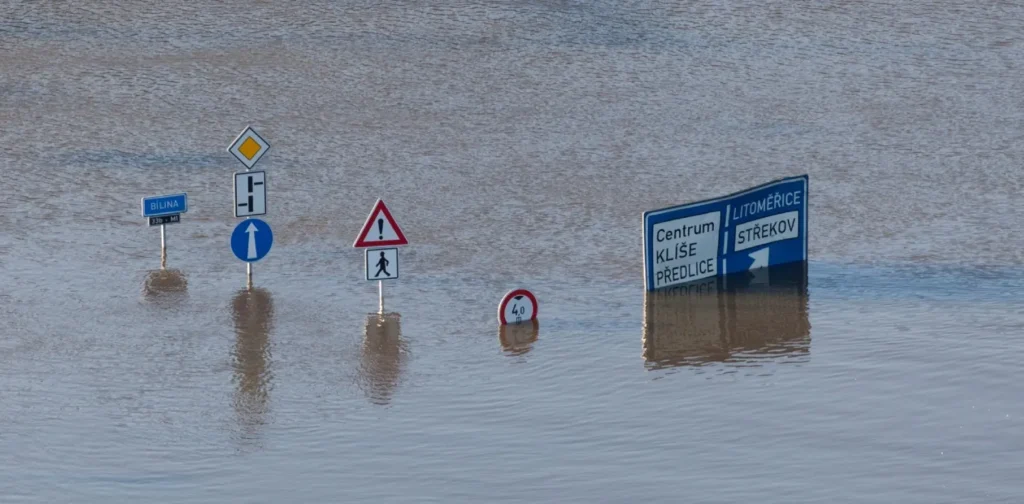Flood Safety Measures: Ways to help you stay safe during floods

Photo by PxHere
Climate change has shifted the global weather cycles, making disasters more severe and frequent. With the increasing risks of extreme rainfall, flood safety measures, both systemic and personal, are more important than ever. What are some ways to help you stay safe during floods?
More Floods, Worse Floods
Over the last two decades, there has been a steady increase in flood events, with 4,800 floods recorded from 1990 to 2023. Notably, 2021 marked the second-highest year for floods within this period.
In 2024, severe cases of flooding have occurred across the globe, from Hurricane Milton in Florida to the October floods in Spain to the flash floods in parts of South Asia. These disasters have claimed hundreds of lives, injured many others, and severely damaged critical infrastructure in the affected areas.
Undoubtedly, climate-induced extreme rainfalls have contributed to the rising trend of flood disasters worldwide. For example, research indicates that human-caused climate change has increased the rainfall from Hurricane Milton by 20-30% and enhanced its wind capacity by 10%, making it more destructive. In South Asia, rainfall is increasing, and analysis shows that most changes in flood depth and extent are expected to occur with warming between 0 and 2°C.
Strengthening Flood Safety Measures
Disaster preparedness is crucial to ensure our safety and wellbeing. It’s important to understand that some floods develop slowly, giving us time to respond, while others can happen within minutes. In cases of flood safety, systemic and large-scale efforts must be established to prepare for and mitigate the risks. Still, as individuals, here are some steps you can take to enhance your safety during a flood:
- Be Aware of Flood Warning
Staying updated with warnings and the latest news from local weather forecasts and early warning systems through trusted sources is essential. To enhance our awareness of these warnings, we can sign up for various disaster alerts from reliable sources. This will help us prepare for hazards and stay informed.
- Prepare an Evacuation Plan
Having a clear outline of evacuation routes is essential, especially when the situation makes it difficult to find shelter and requires evacuation. Prepare a go-bag of some essentials, such as identification papers, bank statements, clothes, phones, and medications. Identify alternative routes in case some roads become impassable, and plan a designated meeting place for your family in case you get separated. Taking these steps will help ensure that you can move to a safer area effectively.
- Stay Composed and Calm
During emergencies, staying composed can be challenging, but it’s one of the most important aspects of flood safety measures. Panic may lead to further injury or delays in action. While it’s essential to act quickly and decisively, remaining calm when possible allows you to make better decisions and helps those around you stay calm.
- Turn Off Any Hazard
Electricity, gas, and other hazardous sources can make floods even more dangerous. Therefore, it is important to turn them off to reduce the risk of fire or electric shock. Make sure to turn off the electricity supply, unplug appliances, and relocate them to higher ground.
- Avoid Floodwaters
Staying away from floodwaters when possible can greatly reduce your risk of injury. The flood current can be fast and strong, and you never know what’s beneath those murky waters. Those factors may pose unprecedented risks. Many people have been swept away while wading through, leading to serious injuries or even death. Floodwaters can carry harmful substances, diseases, and debris that can hurt you. It’s essential to remember that these waters are unpredictable and dangerous.
Call for Better Disaster Preparedness
All in all, as citizens, it is within your right and scope to call upon, pressure, and demand your local and national governments to step up and create better disaster preparedness and risk management, including for floods. Systematic and nation-wide flood mitigation plans and infrastructures that are efficient, inclusive, and clearly communicated are vital for ensuring community resilience amid climate change.
Editor: Kresentia Madina & Nazalea Kusuma


 Reframing Governance in the Era of Water Bankruptcy
Reframing Governance in the Era of Water Bankruptcy  Strengthening Resilience amid Growing Dependence on Space Infrastructure
Strengthening Resilience amid Growing Dependence on Space Infrastructure  Indian Gig Workers Push Back Against 10-Minute Delivery Service Strain
Indian Gig Workers Push Back Against 10-Minute Delivery Service Strain  Call for Governance: Grassroots Initiatives Look to Scale Efforts to Conserve Depleting Groundwater
Call for Governance: Grassroots Initiatives Look to Scale Efforts to Conserve Depleting Groundwater  Integrating Environment, Climate Change, and Sustainability Issues into Education Systems
Integrating Environment, Climate Change, and Sustainability Issues into Education Systems  Finally Enforced: Understanding the UN High Seas Treaty
Finally Enforced: Understanding the UN High Seas Treaty